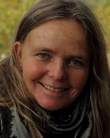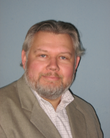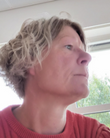Biodiversity in future multifunctional landscapes (BioLand)
What are the main challenges
- How do we define ‘improved biodiversity’ and ‘sustainable land use’ in the arable landscape?
- How can biodiversity across species groups responding differently to changes e.g., mitigation measures be assessed?
- How does sustainable resource utilization relate to biodiversity and ecosystem services?
- How can the multifunctional demands of the arable landscape be achieved without compromising biodiversity and the livelihood of the landscapes?
How can biodiversity be improved without compromising food production?
- To what extent do different agri-environment schemes (AES) within the land sharing-sparing continuum result in biodiversity improvements?
- How can the recreational value of the countryside be increased?
- How can we support a legal and morally legitimate transformation towards a ‘sustainable land use’ and ‘improved biodiversity’ in the arable landscape? Which policy interventions are needed to support multifunctional land use? Theory of changes – what is needed to make the changes
Key characteristics of the Hub
The international community, EU, and national governments have set ambitious goals to meet the current challenges in relation to climate, biodiversity, environment, energy, and food production by 2050. Yet all countries struggle to meet the demands. In countries like Denmark, where agriculture occupies more than half of the country, agricultural development is an important part of the solutions, not only for food production. To exploit the limited space available every area must sustain several demands simultaneously, i.e., be multifunctional. The ongoing discussions of land sparing versus land sharing have shown that the solutions need to cover the continuum from sparing to sharing. Furthermore, solutions need to embed a balanced rural development and citizen involvement to halt the countryside depopulation. The BioLand hub represents a highly diverse group of researchers framing the scope of interdisciplinarity. You will find researchers within the field of Agroecology, Biodiversity, Robotics, drones and other technologies, Landscape ecology and AES, Microbiology, Sociology, Political Science, Economics and Anthropology. We are based at: Aarhus University, Copenhagen University Aalborg University, University of Southern Denmark, and Roskilde University. We aim to build a strong scientific network that can open doors for fruitful collaborations and novel consortia. We will investigate future calls, join in consortia across, interact in workshops, offer site visits, and even exploit the opportunity of developing a new living lab - maybe even a living community - with the opportunity to create real time workshop for supply of ideas and needs - maybe even for the researchers to engage in, investigate and supply research based and data driven solutions for - benefitting from the diversity of expertise´s in the Hub.
What kind of research areas would complement the Hub research?
The BioLand Hub truly welcomes all researchers interested in taking part in our discussion, dialogues, and collaboration. For inspiration you might be a researcher with one of the following backgrounds: Agronomy, biology, nutritional science, animal science, technical science, plant breeding, environmental science, computer scientist, landscape ecology, political science, economics, and anthropology.
You might be familiar with quantitative and/or qualitative methods and/or Action Research, and you might have experience from, or be interested in multi- disciplinary, cross- disciplinary or trans-disciplinary research collaboration. Find you didn´t find your research field on the list – be sure you are highly welcome. We are looking forward to the collaboration.
Academic Coordinators
Beate Strandberg
Department of Ecoscience - Terrestrial Ecology
Aarhus University
Phone: +45 87 15 88 41
Cell: +45 30 18 31 51
E-mail: bst@ecos.au.dk
Ulrik Pagh Schultz Lundquist
The Maersk Mc-Kinney Moller Institute
University of Southern Denmark
Phone: +45 65 50 35 70
E-mail: ups@mmmi.sdu.dk
Hans Peter Hansen
Department of Ecoscience - Wildlife Ecology
Aarhus University
Phone: +45 93 50 86 75
E-mail: hph@ecos.au.dk




